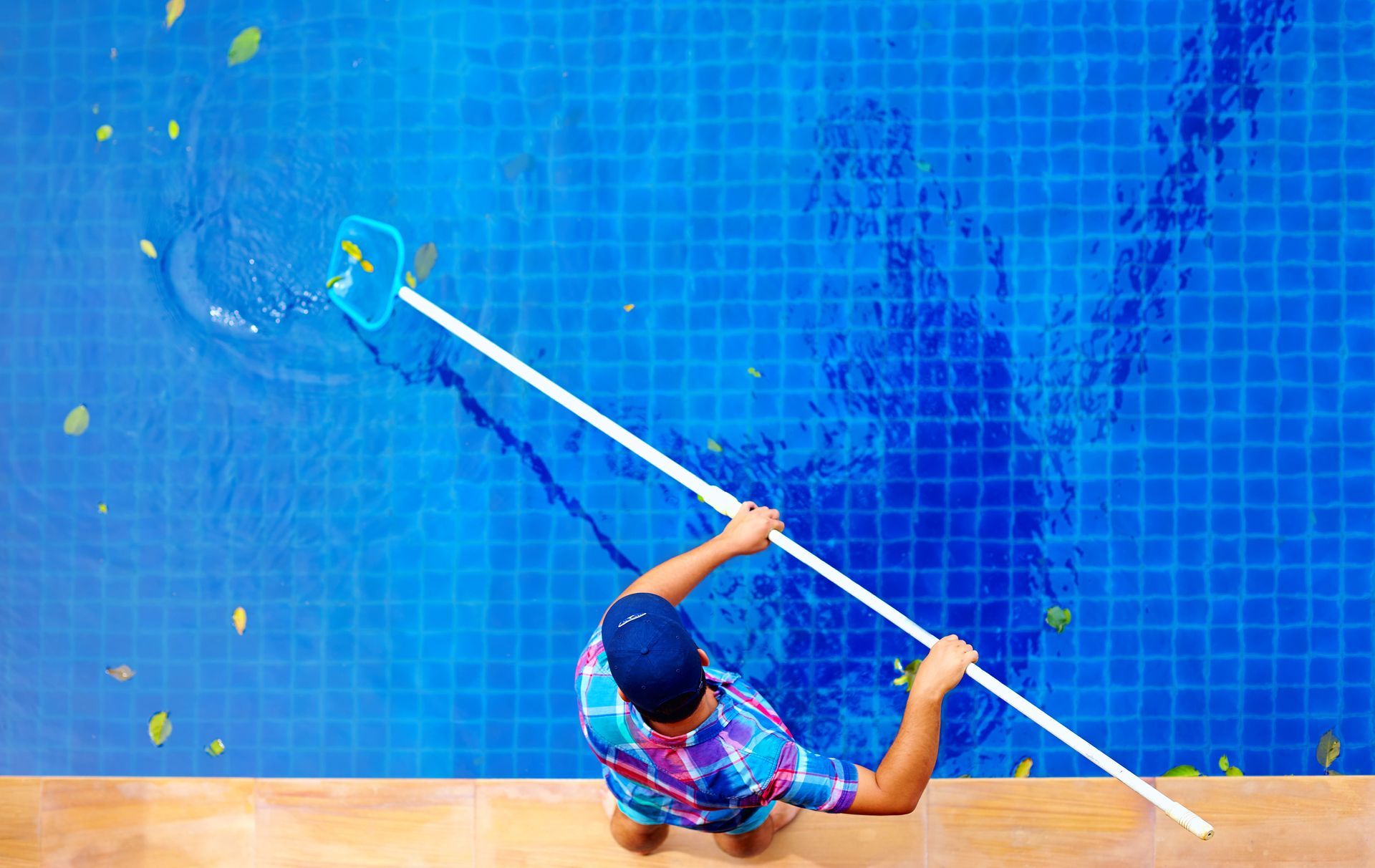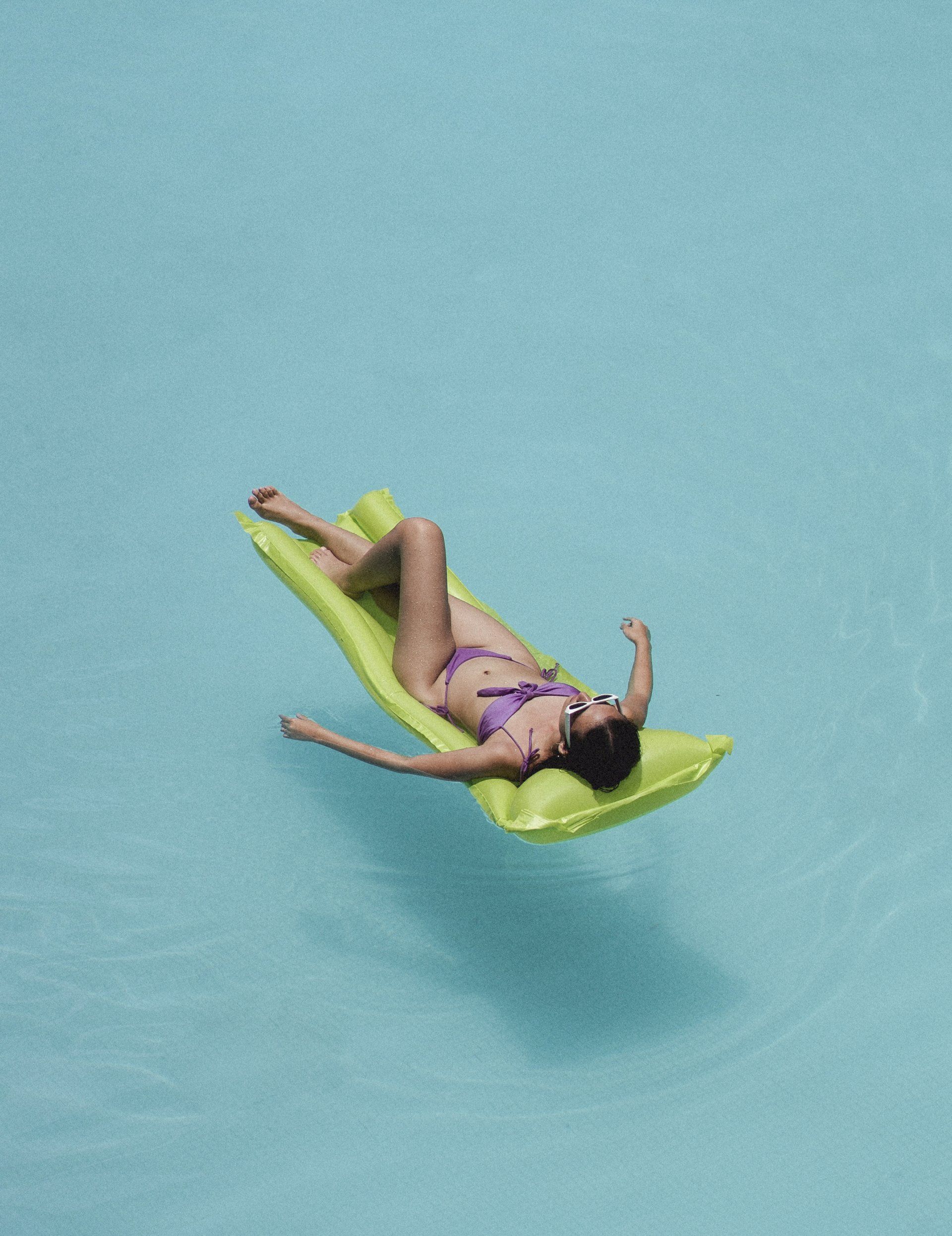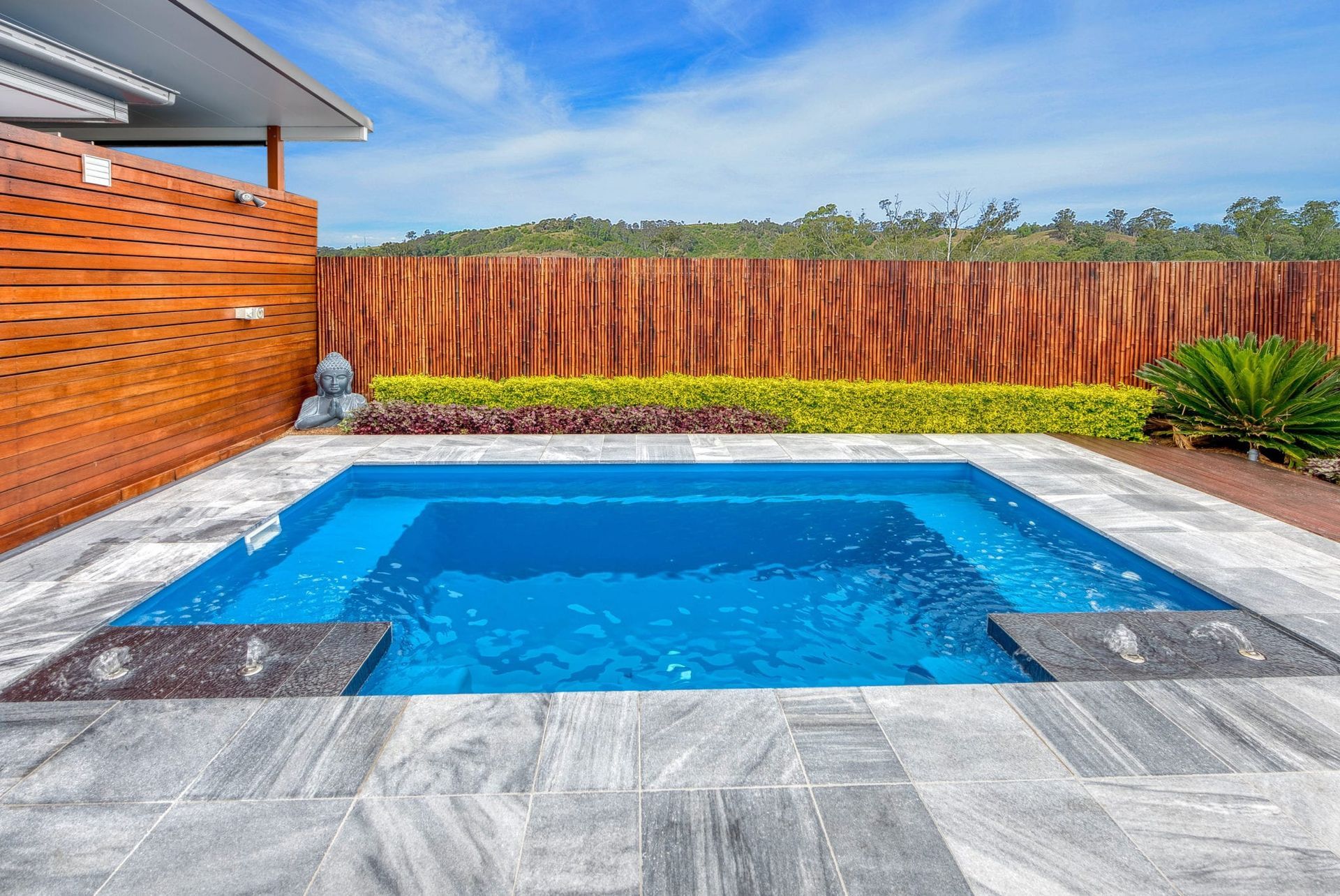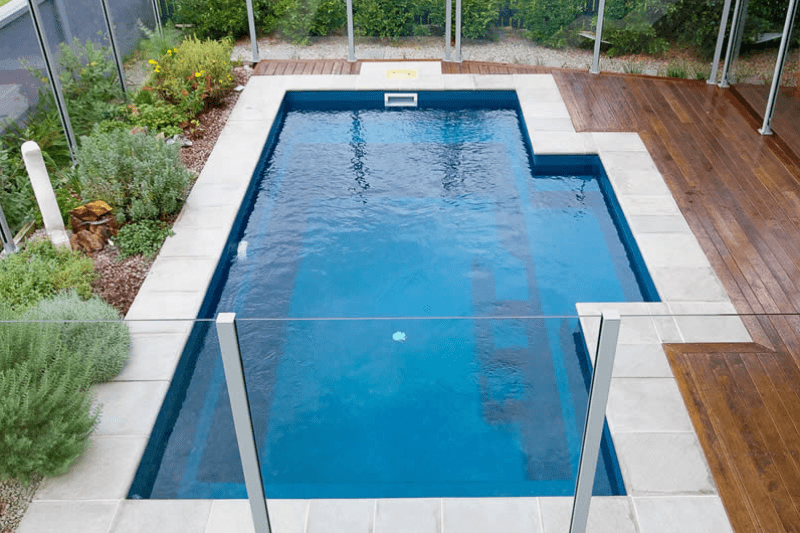How To Maintain Your Pool All Year Round: Keep It Clean Guide
Hard to keep your pool spotless 365 days? You're not by yourself.
Understanding how to take care of a pool accurately can be tough. If you're searching for a low-cost and easy solution, this is the write-up for you!
Let's plunge in!

Key Takeaway:
- Regular cleaning is crucial to maintaining a clean pool all year round. Understanding the factors that affect the type of cleaner you need can ensure you choose the right equipment for your pool.
- Using pool chemicals is integral to maintaining a clean and safe swimming environment. Chlorination using either manual, salt, or liquid chemical feeders is an effective way to keep the pool sanitized and healthy.
- Choosing the right pool heating system, whether solar, gas or electric heating (heat pumps) is essential to keeping a consistent, comfortable temperature in your pool year-round. Ensure you understand the pros and cons of each option to make the best choice for your pool.
Introduction
Keeping your pool clean year-round is essential for the safety and longevity of your pool. Regular pool maintenance, including cleaning and chemical adjustments, is necessary to ensure the water is comfortable and safe for swimmers.
In this article, we'll cover everything you need to know to maintain a clean pool, from checking the chlorine and pH levels to using testing kits and adjusting alkalinity and calcium hardness.
We'll also discuss different types of chlorination methods, such as manual and salt chlorinators, as well as options for pool heating, including solar, gas, and electric. Follow these tips to achieve a sparkling clean pool all year round, without any unnecessary costs or headaches.
Cleaning Your Pool
Cleaning Your Pool:
Regular pool cleaning is crucial for maintaining a healthy and safe swimming experience. A clean pool not only looks good but also ensures the longevity of the pool equipment. By following a few simple steps, you can ensure that your pool stays clean and inviting all year round.
- Step 1: Skim the surface of the pool with a pool net to remove leaves, insects, and debris. Empty out the pool skimmer and pump baskets regularly to prevent clogging and improve water circulation.
- Step 2: Brush the walls and floor of the pool to remove any algae and prevent calcium buildup. Make sure to clean the pool tiles and grout around the waterline as well.
- Step 3: Vacuum the pool using a manual or robotic pool cleaner. This will remove any remaining dirt and debris from the pool floor. If you have a cartridge filter, make sure to clean it regularly.
In addition to these steps, regularly monitoring and maintaining pool chemicals such as total alkalinity and manual chlorination is essential. You can also use liquid chemical feeders, solar heating, gas heating, or electric heating to enhance water quality and temperature. By following these maintenance practices, you can enjoy sparkling clean and safe swimming pools.
Research shows that a dirty and poorly maintained pool can lead to various waterborne diseases. (Source: Centers for Disease Control and Prevention)
Factors that Affect the Type of Cleaner You Need
To ensure an efficient and effective pool cleaning process, different factors affect the type of cleaner a user may require. These factors include but are not limited to, the size and shape of the pool, type of debris, and frequency of pool usage. By taking these factors into consideration, a user can select a cleaner that best suits their needs for maintenance of swimming pools.
The following table shows the Factors Affecting Pool Cleaner:
| Factors Affecting Pool Cleaner | Description |
|---|---|
| Pool Size | The size of the pool will determine the power capacity required in a cleaner. |
| Debris Type | The type and size of debris dictate whether you need a suction or pressure cleaner. |
| Usage Frequency | A frequently used pool may require more than one cleaning per week. |
It is essential to note that regular maintenance of swimming pools is necessary in preventing algae growth and other microorganisms that may cause infections. Using natural products like baking soda can help to maintain pH levels while reducing the risk of skin and eye irritation on swimmers. Additionally, automatic cleaners may be more convenient for users who do not have enough time or energy to manually clean their pools.
Interestingly, automated pool cleaners were first introduced over half a century ago with technologies advancing continually since then to improve performance quality by incorporating smart sensors, energy-saving mechanisms among others.
Ultimately, using the right pool cleaner based on individual needs is key in ensuring hygienic circumstances around one's swimming facility.
DIY Pool Cleaning
Maintaining Clean Swimming Pools at Home- A DIY Guide
Cleaning your pool regularly ensures that the water is safe and hygienic for swimming. DIY cleaning is a cost-effective solution to keep your pool clean and in good condition.
Here is a 3-step guide to DIY cleaning:
- Skim the surface of the pool using a leaf net or skimmer basket to remove any debris such as leaves, insects, grass clippings, hair, or other foreign matter.
- Brush down the walls and surfaces of your pool using a nylon brush to dislodge dirt buildup. Make sure you cover every inch of the pool including steps, ladders, and corners.
- Vacuum the pool floor and sides to pick up any leftover dirt and debris after brushing. You can either use an automatic cleaner or do it manually with a handheld vacuum.
To avoid overworking your filter system, it's crucial that you clean your pump baskets regularly by removing any build-up of debris.
Pro Tip: Always make sure you test pH levels before adding chemicals, follow manufacturer's instructions on products used for balancing water chemistry.
Employing a Pool Cleaner
When it comes to keeping your pool in top condition, seeking assistance from a pool cleaning service can be immensely helpful. Here's how to employ a professional cleaner and ensure they are best-suited for your needs.
- Research Pool Cleaners: Begin by identifying potential pool cleaning services in your locality. Look up online reviews and check their customer feedback ratings.
- Contact the Companies: Once you've shortlisted your preferred candidates, get in touch with each one to discuss pricing, availability, and services involved. It's important to clearly establish expectations right from the start.
- Review Insurance and Licenses: Check that the pool cleaner is fully licensed and insured to avoid any accidents or setbacks during the cleaning process.
- Sign a Contract: Ensure that you have a written contract outlining all duties involved before signing off on any agreements with the hiree.
Remember that different companies may offer different specialisations or price points as well as differing styles of communication or billing.
To keep an eye on things, check in with the company periodically throughout their service period, ensuring open communication channels exist.
One time I had hired a pool cleaner who did not carry liability insurance. They ended up slipping while working on my pool deck and sustained injuries which required hospitalisation. I learned my lesson about being proactive and verifying proper documentation before hiring someone for maintenance work around my home!
Buying a Mechanical Pool Cleaner
A Mechanical pool cleaner is crucial in ensuring that your swimming pool stays clean and sparkling all year round. Here are three things you need to know when buying the best-fit mechanical pool cleaner for your needs:
- Consider whether you want a suction, pressure or robotic cleaner depending on your pool type.
- Look out for features such as brush quality, filter size, energy consumption and cleaning cycle times.
- Purchase from reputable brands and retailers to ensure good quality and efficient after-sales service.
To get the most value out of a mechanical pool cleaner investment, it's important to follow proper maintenance practices such as regular cleaning, replacing worn-out parts and storing the device properly after each use.
When shopping, be sure to read online reviews from different sources to get an overall understanding of what other users have experienced with their devices. Remember that not all cleaners will work optimally in every scenario so tailor your search according to your individual needs.
True Story: A family chose a suction-side mechanical pool cleaner that they believed was budget-friendly but ended up spending more time manually finishing off their cleaning efforts because it kept missing spots. Eventually, they upgraded to a smart robotic cleaner with superior navigation technology which made their lives much easier in terms of constant upkeep.
Pool Chemicals
Pool Chemicals play a crucial role in pool maintenance, ensuring that the water is clean and safe for swimming at all times.
- Chlorine: This is the most common chemical used to kill bacteria and viruses present in the water.
- Algaecides: These chemicals help to prevent algae growth and keep the pool clean and clear.
- pH Balancers: These chemicals maintain the balance of acidity and alkalinity in the water, ensuring it remains safe for swimmers.
- Calcium Hardness Increaser/Reducer: This chemical maintains the optimal calcium level in the water and prevents staining or etching of the pool's surfaces.
- Cyanuric Acid: This is a stabilizer for chlorine, which helps it to last longer and work effectively.
- Sodium Bicarbonate: Used to increase alkalinity in the water and prevents pH fluctuations.
Ensure that you check the label and instructions for each chemical. The wrong amount or type of chemical can cause harm or damage to the pool.
To optimise chemical performance, test the water frequently using a test kit and adjust the amounts of chemicals accordingly.
Regularly cleaning and maintaining the filter system also helps to prevent the buildup of debris and bacteria.
To prevent chemical imbalances, avoid adding chemicals at the same time, or after a sudden rainstorm or heavy use of the pool.
By regularly maintaining the correct chemical balance in your pool, you can keep the water safe and clean, and ensure the longevity of your pool's surfaces and equipment.
Importance of Sanitisation
Proper sanitisation is crucial to maintain a clean and healthy environment in your pool. Regular use of pool chemicals such as chlorine, bromine , and algaecides can help kill harmful bacteria and prevent the growth of algae. These chemicals work by breaking down organic matter, including sweat, urine, dirt, and other residues that accumulate over time.
To ensure effective sanitisation, it's essential to maintain appropriate levels of these chemicals in your pool water. This involves frequent testing to monitor pH levels and adjust chemical treatments according to manufacturer recommendations. Failure to maintain proper chemical balance can result in bacterial growth and cloudy water.
In addition to regular chemical treatment, other measures such as skimming debris from the surface of the water, vacuuming the bottom of the pool regularly, and backwashing the filter occasionally are important to keep your pool clean.
A homeowner shared his story about how skipping regular manual cleaning led to an outbreak of bacteria in his backyard swimming pool. The situation became so severe that he had to shut down the pool for several weeks until it was fully sanitised again. This experience demonstrated how vital proper maintenance is for not only aesthetic reasons but also health reasons.
Maintaining a clean and healthy swimming environment all year round requires consistent effort and attention. Proper sanitisation through regular testing, chemical treatment adjustments, manual cleaning measures can help keep your pool crystal clear.
Using Chlorine for Sanitisation
Chlorine as a Pool Sanitizer:
- For sanitising the pool, chlorine is a widely used chemical.
- Chlorine acts as an oxidising and disinfecting agent that kills bacteria and other harmful microorganisms in water.
- This chemical is available in different forms like tablets, granular powder, and liquid.
- While using chlorine for sanitisation, it is important to maintain the proper pH level of the pool.
Notably: According to the Centers for Disease Control and Prevention (CDC) , properly chlorinated pools help prevent outbreaks of recreational water illnesses.
Chemical Balance of the Pool
Maintaining Optimal Chemical Levels in Your Pool
It is crucial to maintain optimal chemical levels in your pool all year round to keep it clean and safe for swimmers. Balancing the pH, total alkalinity, calcium hardness, and chlorine levels in the pool water is essential. These chemicals work together to kill bacteria and other microorganisms that can cause illnesses.
To balance the chemical levels, you must regularly test the water using a reliable testing kit. Be sure to follow the recommended range of each chemical level to avoid any imbalances that may cause skin irritation or corrosion on metal surfaces.
It's worth noting that pool chemicals have a limited lifespan and will eventually degrade over time. Therefore, it's best to replace them regularly, even if they are not at their maximum usage limit.
To ensure optimal use of pool chemicals, be mindful of the weather conditions as heat causes rapid depletion of chemicals due to evaporation. Thus regular monitoring is crucial.
Regular maintenance of optimal chemical levels ensures longevity and enriches the overall experience for swimmers while preserving lead life.
Chlorination
The Role of Chlorine in Pool Maintenance
Chlorination is the process of adding chlorine to the pool water to sanitise and disinfect it, killing bacteria, viruses, and algae that could be harmful to swimmers. Regular chlorination helps to maintain the pool's clarity, prevent eye and skin irritation, and ensure the water is safe for swimming. Without proper chlorination, the pool water can become cloudy and harbor harmful microorganisms.
To chlorinate the pool, you can use chlorine tablets, granules, or liquid. It is important to follow the manufacturer's instructions, as over-chlorination can be harmful to swimmers, and under-chlorination can lead to poor water quality. Regular testing of the pool water's chemical balance is necessary to determine the appropriate amount of chlorine required.
When adding chemicals to the pool, avoid direct contact with skin, wear protective clothing, and never mix different chemicals together. Always store chemicals in a cool, dry place, away from sunlight.
Maintaining proper chlorination levels can be challenging, especially during the summer months when the pool is used most frequently. However, neglecting this essential step in pool maintenance can lead to costly repairs and unsafe swimming conditions. By making chlorination part of your regular pool maintenance routine, you can ensure your pool remains clean and clear all year round.
True Story:
I once had a neighbor who neglected to add chlorine to their pool regularly. Not only did the water turn an unappealing green color, but their family experienced skin and eye irritations after swimming in it. To prevent similar issues, they hired a pool maintenance professional, who helped them establish a regular chlorination schedule. The results were striking, as their pool became crystal clear, and the family resumed enjoying their backyard oasis.
Manual Chlorination
To manually chlorinate your pool, you can perform the task using Chlorine Granules or Chlorine Tablets. Chlorine Granules are quick dissolving and easy to use, whereas the chlorine tablets dissolve slowly and require a chemical feeder for consistent distribution.
Here is a 6-step guide to help you understand Manual Chlorination:
- Wear protective gear such as gloves and goggles.
- Determine the correct amount of chlorine based on the size of your pool.
- Add the recommended amount of chlorine granules or tablets into your pool according to manufacturer instructions.
- Distribute evenly and wait at least an hour for it to disperse before swimming in the pool again.
- Test your water regularly using a testing kit to ensure proper pH levels ( 7.4-7.6).
- Repeat this process on a weekly basis for optimal results.
It's important to note that manual chlorination is not always reliable and may not provide consistent levels of chlorine in your pool. Consider using alternative methods such as saltwater systems or UV sterilisation.
For best results, remember to maintain proper pH levels, shock your pool when necessary, run filters regularly and clean it often by skimming debris off its surface. These strategies will help prolong the life of your equipment and keep swimmers safe all year round.
Salt Chlorinators
Salt Chlorination: The Best Way to Keep Your Pool Clean
Salt chlorinators are an efficient and sustainable method for sanitising swimming pools by converting salt into chlorine through the process of electrolysis. Below are 5 points to help you understand the benefits of this innovative product:
- Reduces chemical usage and saves money on pool maintenance
- Maintains consistent levels of pH and reduces skin irritation caused by traditional chlorination
- The natural operation keeps corrosive chemicals from damaging your pool equipment
- Saltwater sanitisation is both simple and straightforward, with minimal effort to maintain water chemistry balance compared to traditional methods
- Requires limited maintenance, making it an ideal long-term investment for homeowners looking for a hassle-free way of keeping their pool clean throughout the year
This technology boasts unique features that differentiate it from traditional methods. Using salt chlorination makes it easy to keep your pool clean, as it discourages waterborne bacteria growth, which can be harmful to swimmers.
Pro Tip: Choosing a reliable salt chlorinator from a reputable manufacturer is key to ensuring long-term performance of your pool cleaning system.
Liquid Chemical Feeders
To keep your pool in pristine condition all year round, it's important to have a reliable system for dispensing liquid chemicals into the water. One way to achieve this is through the use of chemical feeders.
Chemical Feeders come in different shapes and sizes and can either be in solid or liquid forms. They are designed to release a continual supply of chlorine or other relevant chemicals to the pool's water circulation system. A table outlining these different types might look something like this:
| Type of Feeder | Description | Advantage |
|---|---|---|
| Floating Feeder | Releases standard tablets (or sticks) at intervals as the feeder floats around | Easy to install; No installation Required; Efficient |
| Inline Feeder | Dispenses continuous tabs directly into plumbing after Filter. | Consistent Delivery; Easy Regulation |
| Digital Dispenser | Can dispense variable amounts of chemical based on time and demand. Sometimes app controlled for filtration control. | Highly accurate results; Programmable customisation options |
Furthermore, ensure you inspect the chemical feeder regularly no matter which one you choose to use during set up.
When selecting what kind of feeder best suits your swimming conditions, certain factors such as performance, maintenance, budget should be considered alongside availability that includes replacement parts and support services.
To maintain optimal cleanliness levels in your pool, always remember some best practises by keeping chlorine levels consistent with traditional pool care methods like testing pH balance frequently, ensuring chemical feeders contain enough product at all times while eliminating any oversaturation caused by adding too much chlorine at once leading to poor swim experience or possible damage over time.
Pool Heating
When it comes to keeping your pool comfortable, maintaining the right temperature is essential. This can be achieved through various heating options, including solar, electric, or gas heaters. The type of heater you choose will depend on your budget, location, and pool size.
It's important to regularly clean and maintain your heating system to ensure it functions properly and efficiently. This includes checking for any leaks, keeping the filters clean, and monitoring the temperature regularly. Additionally, investing in a pool cover can help to retain heat and reduce energy costs. With proper maintenance, your pool heating system can provide year-round comfort for you and your family. Don't miss out on enjoying your pool any time of the year.
Solar Heating
Solar energy pool heating is a system that has become increasingly popular among pool owners. It harnesses the sun's energy and uses it to keep your pool warm - much more cost-effectively than traditional methods. Utilising solar panels or mats, the system operates by circulating water through the collector where it heats up before returning to the swimming pool.
If you're looking for an eco-friendly and budget-friendly way of maintaining your pool temperature all year round, then solar heating could be just what you need. By using renewable energy resource, this system doesn't release any pollutants into the environment and allows you to cut down on utility bills.
To maximise its efficiency, make sure that your solar collector gets plenty of direct sunlight each day. Cleaning it regularly will also help remove any debris that may block the sun's rays from getting in. With proper maintenance, a good-quality solar heating system should last at least 10-15 years.
If you're concerned about installing a new system yourself, don't worry! There are many companies out there with specialised knowledge of installing and optimising solar energy systems for both residential and commercial clients. With their expertise, they can provide professional installation services that ensure your system runs smoothly throughout its lifespan.
The history behind solar pool heating goes back several decades, with early models dating as far back as the 1950s. These were rudimentary systems that utilssed simple black piping to capture heat from the sun and transfer it to a nearby swimming pool or spa. Since then, modern technology has greatly improved these systems making them more efficient and affordable for average homeowners.
Gas Heating
Gas Pool Heating works by heating the water with gas-powered burners, which heat up the water and then circulate it back into the pool. This system is more cost-effective than electric heating systems and heats a pool quickly, making it perfect for those who want to enjoy their swimming pool whenever they please. Gas heaters require annual maintenance to keep them running effectively, including cleaning and checking for leaks in the gas line.
To ensure your gas pool heater is working correctly, it’s important to keep an eye on signs of wear and tear such as rust or cracks. Regular cleaning is also necessary, including the burner tubes and heat exchanger, which can become clogged with dirt and debris over time. Professional servicing may be required if there are any issues beyond simple maintenance.
While Gas Pool Heating is popular due to its lower costs compared to electric heating methods, it's important to remember that natural gas prices can fluctuate according to market conditions. However, advancements like energy-efficient gas heaters can help minimise costs in certain situations, making them a great option for many people looking to keep their pools comfortable all year long.
The history of gas pool heating goes back over 100 years when homeowners first started experimenting with different types of fuel sources for their pools. Since then, advancements have been made in technology leading up to modern-day gas-powered burners that offer quick and efficient heating while keeping energy costs relatively low.
Electric Heating (Heat Pumps)
Using a high-efficiency electric-powered pump to heat your pool can be an effective way of maintaining a comfortable temperature all year round. This type of system can extract energy from the surrounding air and convert it into heat that is then transferred to the water in your pool. These pumps are more energy-efficient than other types of heating systems as they do not generate heat directly, but rather transfer it from one place to another.
When using an electric heating system, it's important to maintain it properly to ensure its longevity and optimal performance. Regular maintenance includes cleaning filters, checking for any leaks or damage, and ensuring proper water chemistry levels are maintained. Regular checks will help you identify problems early on and address them before they escalate into more significant issues.
One advantage of using an electric pump for pool heating is that it allows for quick and easy adjustment of the temperature as needed. This makes it ideal for homeowners who want control over their pool's temperature at all times. Additionally, because they use electricity to operate, these pumps do not produce harmful emissions like gas-powered heaters would.
Origins show that electric pumps were first developed in Japan in the 1970s by the Toshiba Corporation. Originally designed for residential central heating and cooling systems, these pumps have since been adapted for use in swimming pools and hot tubs due to their energy efficiency advantages over other systems on the market.
Conclusion and Recommendations
Maintaining a sparkling clean pool requires year-round attention. Regular cleaning with proper equipment and chemicals is essential. In addition, ensuring proper water balance and filtration is crucial to avoid harmful bacteria. To further prevent issues, scheduling routine professional maintenance is recommended. Remember, a well-maintained pool adds value to your property and benefits overall health and enjoyment. It is important to prioritise pool maintenance for optimal benefit.
To avoid potential problems, consistency is key. Ensuring regular skimming, vacuuming, and brushing of walls, floors, and steps prevents buildup and prolongs the life of pool components. Consistent testing and treatment of chemical levels protect against harmful bacteria and unsanitary conditions. Keeping accurate records and implementing a maintenance schedule reduces the need for costly repairs.
Additionally, investing in high-quality equipment and pool covers protects against harmful UV rays and inclement weather. Removing debris and leaves from the pool regularly reduces risk of clogged filters and damage to pumps.
Remember, in order to avoid potential problems, routine professional maintenance is recommended. A certified technician can detect and repair minor issues before they become major. A well-maintained pool adds value to your property and benefits overall health and enjoyment.
According to the CDC, " Swimming is an excellent way to get cardiovascular exercise, to strengthen muscles, and to boost mood ". Therefore, maintaining a clean and safe pool is not only a property investment but also a definitive investment in your health and wellbeing.
Five Facts About How To Maintain Your Pool All Year Round: Keep It Clean
- ✅ Regularly skimming the surface of your pool helps to remove debris and results in a cleaner pool.
- ✅ Brushing the walls and tiles of your pool removes algae, dirt and other build-ups, resulting in a healthier pool.
- ✅ Vacuum your pool regularly to remove particles and debris that cannot be removed by skimming alone.
- ✅ Maintain the proper chemical levels in your pool, including pH, alkalinity and chlorine levels, to kill bacteria and keep your pool clean and clear.
- ✅ Regularly check and maintain your pool filter to ensure it is clean and functioning properly, allowing for the proper circulation and filtration of your pool water.
FAQs about How To Maintain Your Pool All Year Round: Keep It Clean
1. What are the basic steps to maintain your pool all year round to keep it clean?
To maintain your pool all year round and keep it clean, you should regularly test the water and balance the chemicals, clean the debris in and around the pool, regularly brush and vacuum the pool walls and floor, and ensure proper filtration and circulation of the water.
2. What kind of filter should I use to keep my pool clean all year round?
You can use either a sand, cartridge or DE (diatomaceous earth) filter to keep your pool clean all year round. Each type has its own advantages and disadvantages, so it's important to research and choose the best option for your specific pool and needs.
3. How often should I clean my pool's filter?
You should clean your pool's filter at least once a month or more often, depending on how much use the pool gets and how dirty the water is. A dirty or clogged filter can reduce the efficiency of the pool's overall system and lead to cloudy water and potential algae growth.
4. Can I use natural products to keep my pool clean all year round?
Yes, there are many natural products available that can keep your pool clean all year round. These include enzymes, natural clarifiers, and mineral-based systems. However, it's important to research and choose the best option for your specific pool and needs, as not all natural products are equally effective.
5. How can I prevent algae growth in my pool?
You can prevent algae growth in your pool by establishing and maintaining proper chemical balance, regularly cleaning and brushing the pool walls and floor, ensuring proper filtration and circulation of the water, and adding an algaecide as needed. It's also important to limit the amount of sunlight and organic matter in the pool, as these can contribute to algae growth.
6. Why is it important to regularly test and balance the chemicals in my pool?
Regularly testing and balancing the chemicals in your pool is important to ensure that the water is safe for swimming, prevent chemical damage to the pool's surfaces and equipment, and maintain the overall efficiency and effectiveness of the pool's system. Proper chemical balance can also help prevent the growth of bacteria and other harmful organisms.
TYPES OF Pools
Pool Designs
26 Red Gum Circuit, Sapphire Beach NSW 2450
Business hours
Mon - Fri: 8am - 5pm
There after by appointment
Sat - Sunday: Closed




